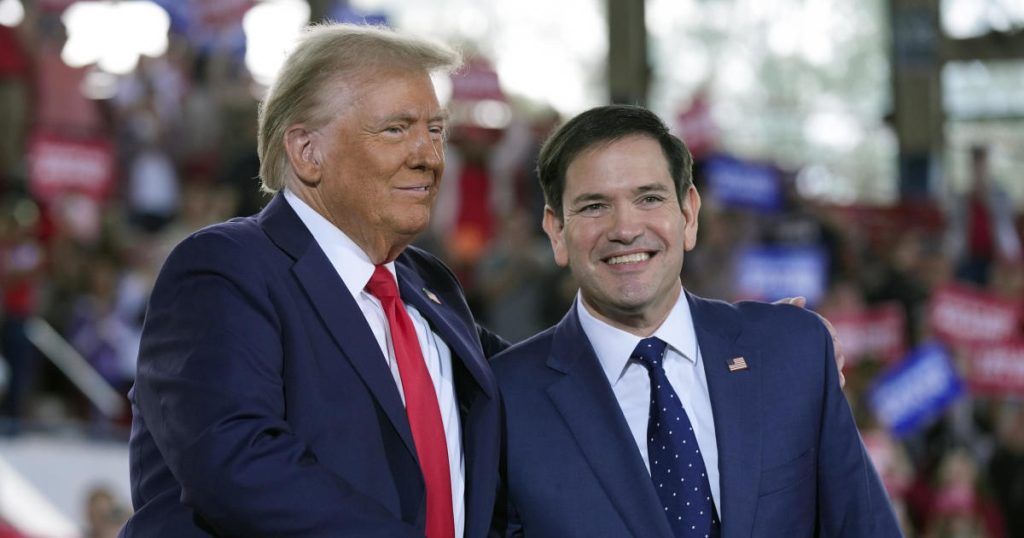President-elect Donald Trump is expected to nominate Senator Marco Rubio of Florida as his secretary of state, signaling a turnaround in their relationship since the 2016 Republican primaries. Rubio, known for his foreign policy experience and hawkish stance on China, is likely to receive support from his Republican colleagues in the Senate, where the GOP will maintain control in January. If Rubio is selected, Florida Governor Ron DeSantis would appoint a temporary replacement for the open Senate seat.
In addition to the potential nomination of Rubio, Senator Bill Hagerty of Tennessee has also been considered for the role of secretary of state. Trump has announced several other nominees and appointments since winning a second term, with more expected in the coming weeks. These appointments and nominations offer insights into Trump’s priorities and policies for his next term in office, outlining the direction his administration may take on key issues such as foreign relations and national security.
The expected nomination of Rubio signifies a shift in the relationship between him and Trump, who were once rivals during the 2016 presidential primaries. Despite their past disagreements, Rubio and Trump have repaired their relationship, with Rubio campaigning alongside the former president in the recent election. Trump’s decision to potentially nominate Rubio for the top diplomatic position underscores the importance of experience and expertise in foreign policy in shaping his administration’s approach to international affairs.
Rubio, as a member of the Senate Foreign Relations Committee and the top Republican on the Senate Intelligence Committee, brings a wealth of knowledge and insight into the complex world of global politics. His strong stance on China and his experience in dealing with foreign policy issues make him a formidable candidate for the position of secretary of state. With the continued Republican majority in the Senate, Rubio is likely to face a smooth confirmation process, with support from his colleagues in Congress.
The selection of key cabinet members such as the secretary of state is crucial in shaping the direction and priorities of an administration. Trump’s choice of Rubio for this role signals a focus on foreign policy and national security in his second term, as well as a desire to work with experienced and knowledgeable individuals to navigate complex international challenges. As Trump continues to make appointments and nominations in the coming weeks, it will be important to watch how his cabinet picks reflect his vision and goals for the next four years in office.
Overall, Trump’s cabinet picks offer valuable insights into his administration’s priorities and policies, indicating a shift towards a more experienced and knowledgeable team to navigate the challenges of governing. With the nomination of Rubio for secretary of state, Trump signals a willingness to work with former rivals and prioritize expertise in key cabinet positions. As the transition process continues, the upcoming appointments and nominations will provide further clarity on the direction and focus of Trump’s second term in office.














